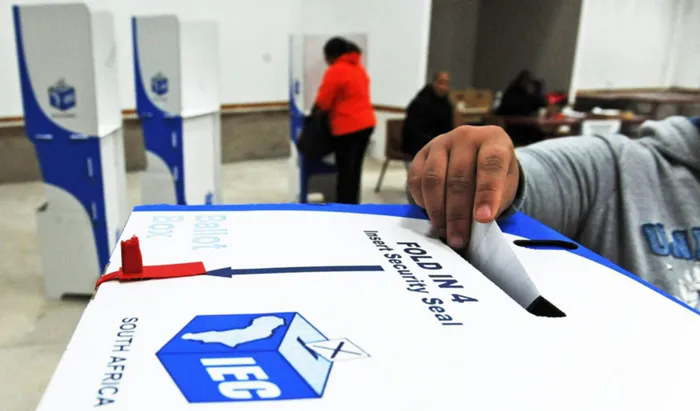#Elections2019: IEC is ready for big day in Western Cape

“A citizen’s right to vote in South Africa’s elections is enshrined in the Constitution, so whether or not a voter has a fixed address is immaterial.” Picture: Courtney Africa/African News Agency (ANA) “A citizen’s right to vote in South Africa’s elections is enshrined in the Constitution, so whether or not a voter has a fixed address is immaterial.” Picture: Courtney Africa/African News Agency (ANA)
Cape Town - With more than 4000 voting districts, over 100 registered political parties, the Independent Electoral Commission (IEC) in the Western Cape says it's ready for this year’s polls.
Pivotal to the elections is parties paying their registration fees.
The IEC has approved election deposits for the national and provincial elections of R200000 for parties wishing to contest national elections and R45000 per provincial election contested.
IEC spokesperson Kata Bapela said the amounts were the same as those used in the 2014 national and provincial elections.
The retention of the same deposits since 2014 means a significant reduction in the amount in real terms. In Cape Town, IEC provincial commissioner Courtney Sampson said that more than 100 political parties were registered to take part in the general elections this year, making it the province with the highest number of registered parties.
Sampson was speaking at the provincial launch in the city on Friday.
He said the IEC was ready to host the final voter registration weekend next week. According to the IEC, more than 3 million people were registered to vote in the province.
“Our staff has been trained and our temporary voting stations, about 36 of them, are also ready.
"The temporary voting stations are always a difficult matter because have to get security for the facility and ablution facilities. We also cannot prepare, let’s say a tent, on the day of the elections. It needs to be prepared a day before,” Sampson said.
Following a public participation in October last year, a final determination of the deposits was made. Bapela said 14 submissions were received from political parties and other stakeholders.
The submissions ranged between calls for an increase in the deposit amounts, retaining the proposed amounts, and a decrease or the scrapping of deposits.
"The practice of prescribing election deposits has been part of our electoral democratic reality in South Africa since 1994.
"In setting the amount, the commission sought to strike a judicious balance between an amount so high that it unfairly impairs the ability of potential electoral contestants and an amount so low that it fails to dissuade frivolous parties and results in a long, unwieldy and cluttered ballot paper,” he said.
How do I register?
To vote in South Africa’s elections, you must register as a voter. You only have to register once, unless you move (within South Africa) or your voting district boundaries change.
Who can register?
You must:
- be a South African citizen;
- be at least 16 years old (you can only vote from age 18); and
- and have a green, bar-coded ID book; smartcard ID; or valid Temporary Identity Certificate (TIC).
When and where can I register?
Apply for registration at the voting station for your voting district on the final registration weekend for the 2019 National and Provincial Elections set for 26-27 January 2019. Voting stations will be open 8am-5pm both on the Saturday and Sunday.
To find out more information, visit the IEC website.
@JasonFelix